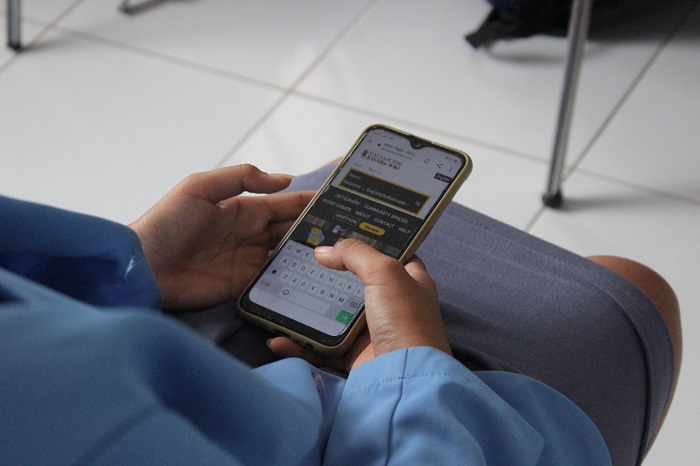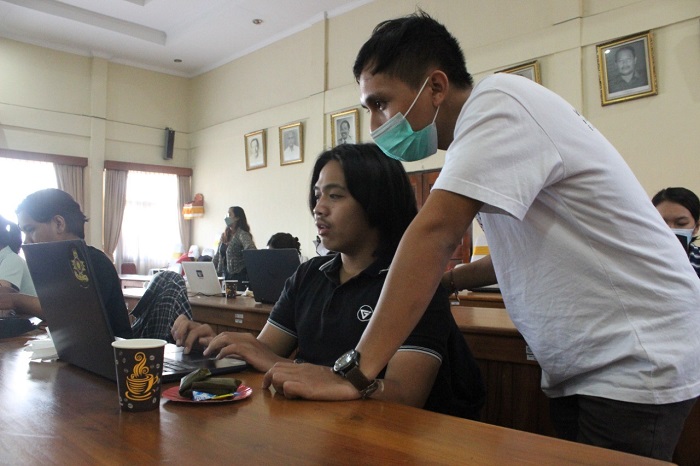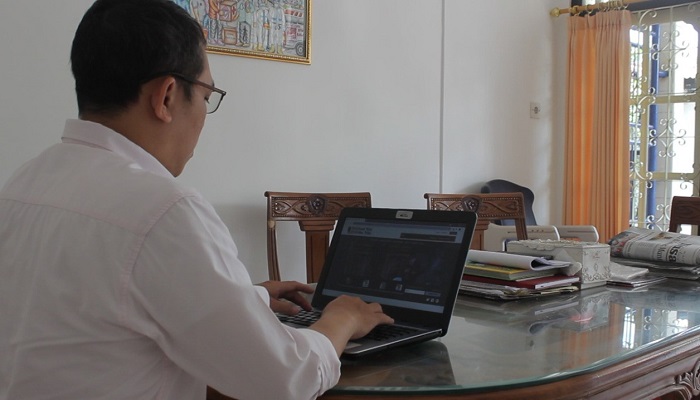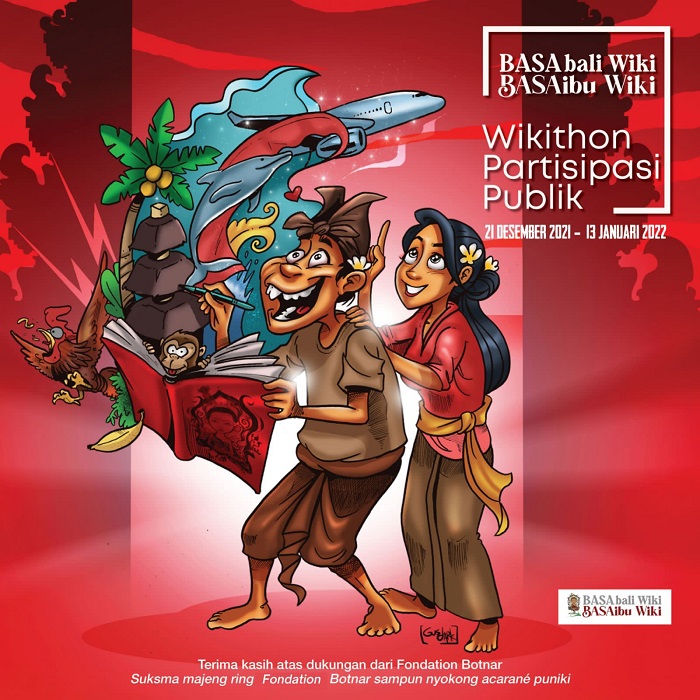Iko Amadeus & Ni Nyoman Clara Listya Dewi
No one ever thought that the modern world would experience such a prolonged crisis as the COVID-19 pandemic. All areas of life have been affected and, now in its third year, the pandemic continues to challenge communities around the world. Indonesia is trying hard to get out of this health crisis and due to its heavy dependence on international tourism, Bali is one of the areas most impacted by the economic downturn.
For the past two years, community organisations in Bali have tried in various ways to support local people and provide stimulus to the depleted economy. One of them is BASAbali Wiki, an organisation that empowers people to take action to improve their lives and livelihoods through a community-developed digital ‘wiki’ platform. A wiki differs from other websites in that content is provided and edited by participants. With BASAbali Wiki, members of the public are able to suggest changes to the structure of the website itself.
BASAbali Wiki (the ‘Wiki’) was started in 2014 as a multimedia Balinese–Indonesian–English wiki dictionary and the public evolved it into a space for people to promote themselves and their work outside of their villages, to capture community histories, to share ways of observing holidays and, lately, to speak out about civic issues. The Wiki evolves with the needs, aspirations and inspirations of the community.

During the pandemic the multilingual BASAbali Wiki has provided a space for people to share coping strategies, improve their ability to distinguish misinformation from verifiable facts and encourage the government to ask for feedback on policies to resuscitate Bali’s economy. The platform is a vehicle to provide mental, physical and economic health.
Crowd-sourcing solutions
To encourage people to use the Wiki as a way of connecting and sharing experiences during this time of dislocation and isolation, BASAbali Wiki has run a series of wikithons – digital competitions – inviting the public to respond to various questions by submitting their short essays, photos, drawings, poems or videos. Anyone can post a response and vote or comment on other people’s responses. A panel of policymakers, subject matter experts and influencers then judge the responses, turning the Wiki into both a repository of current ideas and a safe-space mechanism to get people publicly talking about civic issues. This is especially important as there is little tradition or training in public civic debate among the local community, especially online and in the local language.
Around a hundred people directly participate in each wikithon, with another thousand or so voting and commenting. The wikithons tend to focus on millennials, since they are the ones already online, but BASAbali Wiki also sends out ‘village ambassadors’ to try to better connect with those who have internet capacity but are not using the internet much beyond personal communication and entertainment. The organisation offers on-the-ground sessions teaching digital literacy to encourage a wider swath of the community to participate.

Participation in the wiki has increasingly focussed on health and wellbeing since the start of the pandemic. The responses in relation to topics about personal wellbeing, for example, have been both heart-wrenching and heart-warming. In a wikithon that asked people to describe their biggest challenges and share their coping strategies, one college student talked about how isolated he felt during the lockdown and how important it was to be able to hear from others in similar situations. A young woman explained how she was ostracised by the village she grew up in and treated as a ‘covid stranger’ because she had married someone from another village. According to custom, she was now part of her husband’s village and therefore no longer permitted to travel to the place of her birth during lockdown. Someone else described making new personal rituals when the usual communal ones were banned because of the pandemic.
In response to questions about community health, many people expressed concern about misinformation about the pandemic. BASAbali Wiki offered training in identifying misinformation from verifiable data led by experts. Held under the auspices of MEEDAN, an organisation which is trying to combat COVID-19 misinformation worldwide, participants posted their experiences in a space on the Wiki which functioned as a resource for ways to verify information and a space to share experiences, which were sometimes very personal and challenging. The wiki also held a wikithon specifically asking how misinformation was impacting women as it seemed that they were being particularly affected.
Coping together
With generous support from Fondation Botnar, the Wiki was also able to focus on civic issues as part of the foundation’s ‘Fit for the Future’ program, a global program which aims to improve liveability and wellness for millennials. The Wiki asked people how they were coping with the economic downturn in Bali and heard from people who, for the first time, were using the internet to reach markets beyond Bali. Some talked about returning to the land but trying to grow high value crops like moringa and vanilla, and others talked about scaling down to make ends meet.

When an earthquake struck eastern Bali in October 2021, the Wiki was a place to commiserate, to derive strength and to help one another. Balinese communities have traditionally done this on a local scale but now, through the Wiki, it is being done island-wide as well as reaching out to those beyond Bali’s shores.
Having a place to speak out about the challenges of the pandemic is important, and the Wiki ensures that previously unheard voices now not only have a platform to talk but are also being heard. Recently, the Ministry of Tourism for Bali specifically asked millennials to help the government with ideas about how it can improve tourism in Bali. The Wiki held a civic participation wikithon during December 2021 and January 2022 and created a new space in the Wiki called ‘Bali listens’ for the government to use to ask for feedback.
The wikithon is open to anyone, with special prizes awarded to students, hotel staff and expatriates who may have a particular perspective on things the government can do to help. For many in Bali, the idea of the government asking for input on how they can improve policies is novel, so the government made videos to accompany the wikithon telling people not to be afraid to suggest ideas and about the value of the government learning from the community. The videos were made in the local Balinese language, thereby making a bold statement about the viability of local language and local culture even during a pandemic.
It has been a challenging time in Bali. With so much of the island’s economy and culture wrapped up in tourism for so many years, the shattering halt to international tourism has hit the island profoundly. In response, the Wiki has provided new opportunities to connect, to speak out and be heard.
Ni Nyoman Clara Listya Dewi is a Director of Communication at BASAbali Wiki and a National Geographic Explorer. Iko Amadeus is a social media coordinator at BASAbali Wiki and also a Pancasila, language and literature activist.
